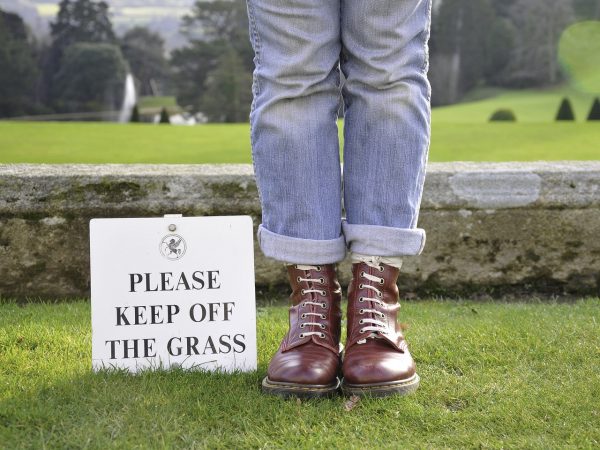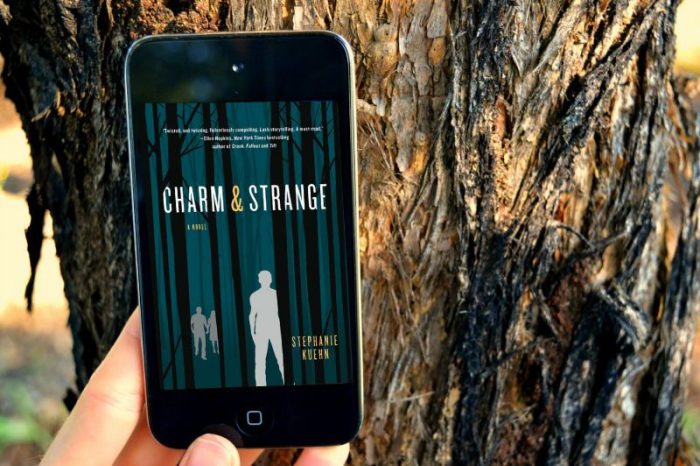Picture it: you’ve got deadlines to hit. You’ve procrastinated far too long and you’re cramming to submit your article. Maybe you’re just a few crucial sentences away from capping off the final chapter of your debut novel and your editor is breathing down your neck. You’re sitting at your desk with the perfect amount of daylight streaming in to keep you energized and focused. You’ve got your trusty cup of coffee on your desk. You place your fingers on the keys of your keyboard. You’re ready. And then it happens… nothing. Your brain is betraying you and the bright, blank screen staring back at you is mocking you. Your cup is empty, the daylight is waning and all hope seems lost.
Believe it or not, it’s actually not the end of the world, it’s just writer’s block. Don’t worry, we’ve all been there. And there are ways to fight it and turn yourself into the writing master you know you can be. Here are five handy tips and tricks to help you combat the dreaded writer’s block:
1. Pursue A Different Medium
Having trouble writing? Why not try ditching writing altogether and just pursue drawing instead? Ok, I’m kidding: but incorporating a different medium could actually help you. If you’re stuck on a particular scene, maybe try drawing it to help paint a mental picture of where you’d like it to go. This is just for you, so no one is expecting you to create an artistic masterpiece, just doodling some stick figures will be fine. Try storyboarding where you not only want your scene but your entire story to go and add the captions or dialogue underneath.
In the 1970s and 1980s, Yale University psychologists Jerome Singer and Michael Barrios recruited a diverse group of writers of all different genres—some of whom were suffering from writer’s block and some who weren’t. They studied these writers for a month, interviewing them and asking them to complete nearly sixty different psychological tests. Some of the common experiences Singer and Barrios noticed among the “blocked” writers were a decrease in motivation; they felt less ambitious, found less joy in writing and were overall feeling less creative. They found it harder to form pictures in their minds, and the pictures they did form were less vivid.
That’s why it’s helpful to take a pen (or marker) to paper and actually create the images instead of just trying to imagine them.

Source: Pexels
2. Give Your Senses A Workout
Obviously writing is a mental exercise, one that takes in a great deal of sensory information. It’s common practice to try to jumpstart your mental capabilities by changing up your environment—but sometimes you don’t even have to go that far to fight off writer’s block. Even just changing the texture of what you’re touching can help. Your fingers are used to scaling the keys (or holding the pen), so try running your hand along a brick wall, touching a silk scarf, or grazing your hand across a soft carpet. Fingers are superhighways to the brain and the change in texture can spark your senses—and even spark some memories.

Source: NY Mag
3. Put Another Dime In That Memory Jukebox, Baby!
On that briefly mentioned topic of memories: cracking open the safe in the ol’ memory bank can really help spark your creativity. While it seems odd to think of something old to create something new, it actually does help. Memories have neural connections to the parts of our brains that think about the future and its possibilities. So bust out that old yearbook, dig through your box of old family photos, or call someone and reconnect and then see the results start pouring out of your fingertips!
4. Break All The Rules
No, we don’t mean drop what you’re doing and go out and rob a bank—instead maybe consider breaking, or at very least changing, one of the rules of something that takes place based on the genre you’re working in. In Barrios and Singer’s study, they broke the test subjects down into four groups: the anxious, the socially hostile, the apathetic, and the narcissistic. The third group, those who were apathetic, seemed to be the most creatively blocked. They could not daydream and they lacked originality, mostly due to the fact that they felt that the “rules” they were subjected to were too constrictive, leading to a depletion of motivation.
So say you’re working with a piece of fiction. If you’re writing something in a Sci-Fi or Fantasy genre, change a rule of nature or science. Make gravity stop working at 10:00 PM. How do your characters and the world around them deal with this? If you’re writing a character-driven piece, change a rule of biology. Maybe everyone in this world has the ability to live to 150. How does this affect their lives and relationships? Maybe after trying this exercise you’ll decide that you don’t want to include these rules, but it still got you writing and opening your mind to different possibilities, and that alone can be enough to help you fight past writer’s block.

Source: Pixabay
5. Meditate And Then Create
In the groups that Barrios and Singer created, three out of four shared a common thread: criticism. The anxious were unmotivated because of excessive self-criticism. The socially hostile didn’t want their work compared to the work of others. The narcissistic found themselves lacking attention and extrinsic reward. It’s incredibly common to block ourselves creatively because we’re worried that we will not write well enough. What you can do when this happens is something called a “responsibility transfer,” in which you take responsibility for the outcome of your work and place it onto a higher being, thus relieving yourself of the pressure that can cause a block.
Here’s how this works:
- Sit comfortably or lie down, relax, and close your eyes.
- Take two or three deep breaths. Inhale and let the clean air reach your brain, then exhale and let the air flow out, taking your worries and concerns along with it.
- Pick a benevolent entity to think of—whichver one best suits your beliefs.
- Imagine lifting the weight of everything you’re concerned about off your shoulders and placing it on the shoulders of this entity.
- Visually lift it off your shoulders and feel the difference as you are now no longer responsible for the outcome of any of these things. Everything is taken care of. You can sit back, relax, and enjoy whatever good you can find along the way.
- Imagine your own success.
- Start writing!

Source: Pexels
And remember, no matter what, always keep writing. Even when you feel like you’ve got nothing important to write, write anyway. Even the best authors get writer’s block—you’ve just got to keep on fighting, and writing, past it.
YouTube Channel: BuzzFeedYellow
Featured image via Pixabay
h/t Signature Reads




